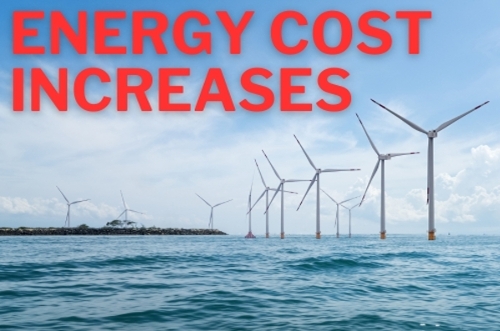|
- The first recommendation was not to procure offshore wind as it was too expensive. Based on the latest New Jersey procurement, prices have doubled since then.
- The second recommendation was if a procurement was ever considered, it should be a competitive bidding process with other clean energy sources.
Despite reminders, this legislation never considered a competitive bid. The absence of a competitive bidding process, a fundamental aspect of fair procurement, is particularly concerning given that offshore wind is at least three to four times as expensive as other available options.
The legislation also ignores previously approved cost caps. Fifteen years ago when mandating the use of wind and solar began, there was a 3% cost cap. Three years ago, the cost cap was about to be exceeded, which would have resulted in freezing the mandate. The legislature doubled the cap, and we are already bumping up against the cap, which is adding $120 a year to homeowner's electric bills.
The potential increase in homeowner's electric bills, a direct and significant impact on the public, is a cause for concern. This premium cost resulted in only 3% of our in-state power production coming from wind and solar. This new offshore wind procurement legislation ignores the cap and could add another $200 in premium costs, bringing the total premium cost to $320 a year.
Finally, during the Senate floor debate, the Governor's representative, the bill's lead sponsor, and a wind industry lobbyist all agreed that a cost cap in the bill was set too low to attract bids. The State's Energy Office, an offshore wind advocate, will decide on its own when a bidding process will begin. The bidding process itself could be expensive, with the cost passed onto electric customers.
Are we going to see legislation next year increasing the procurement cost cap?
This legislation should not have been passed and signed by the Governor.
|

